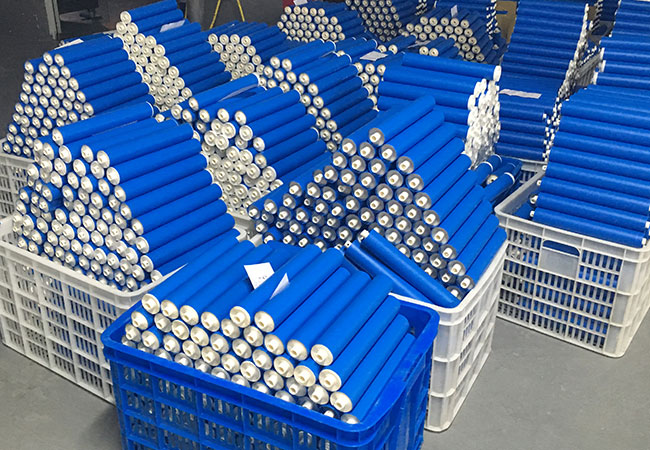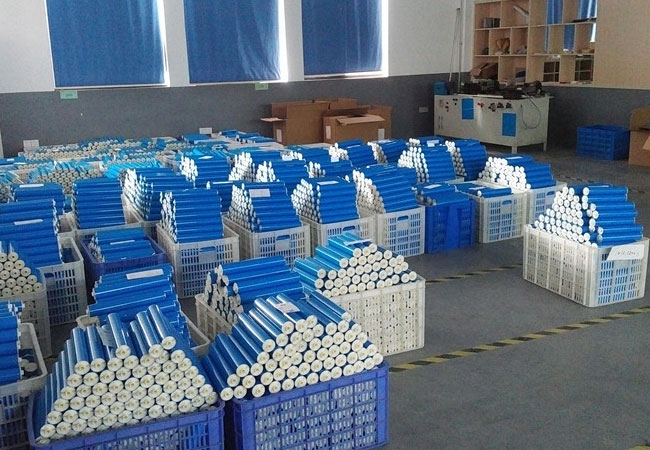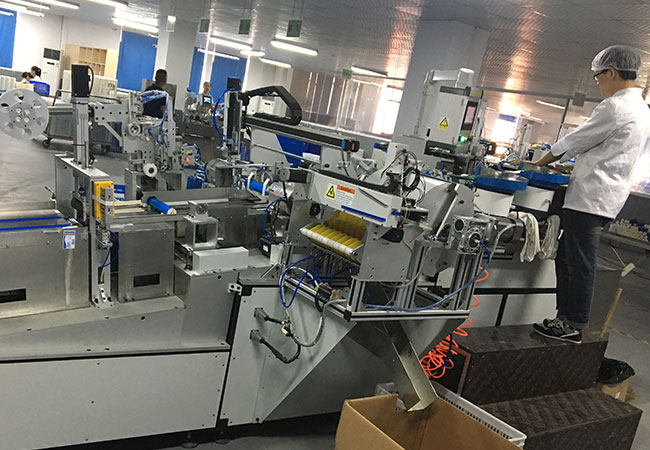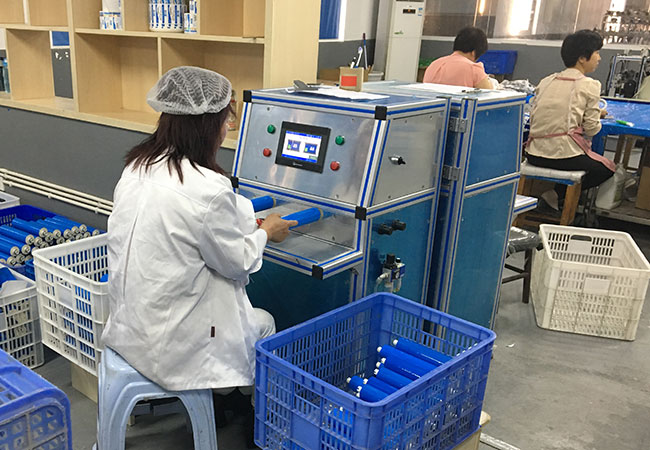Industrial RO Membrane
BW-4040LP
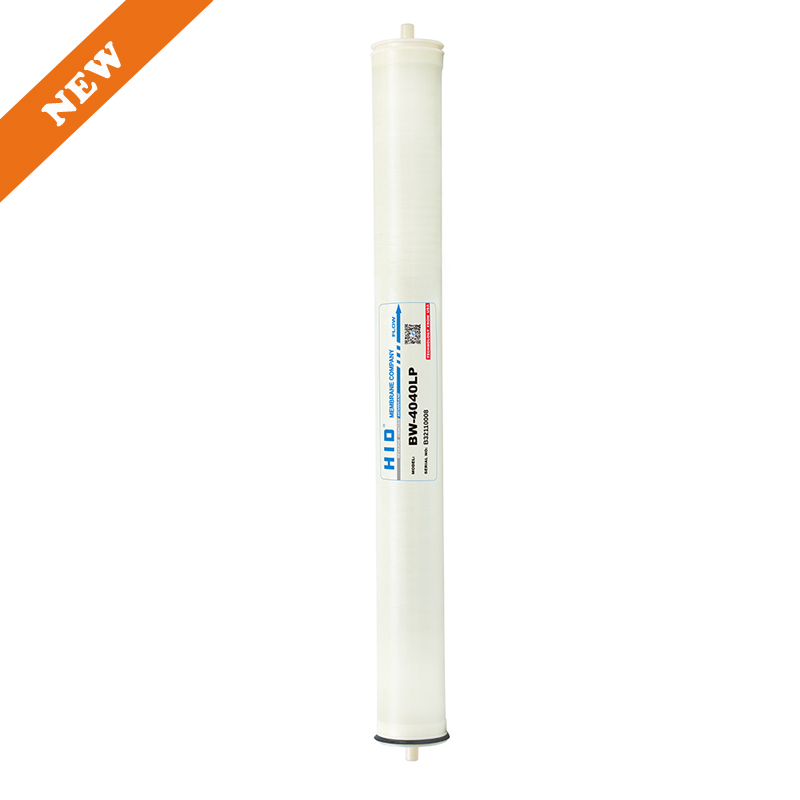
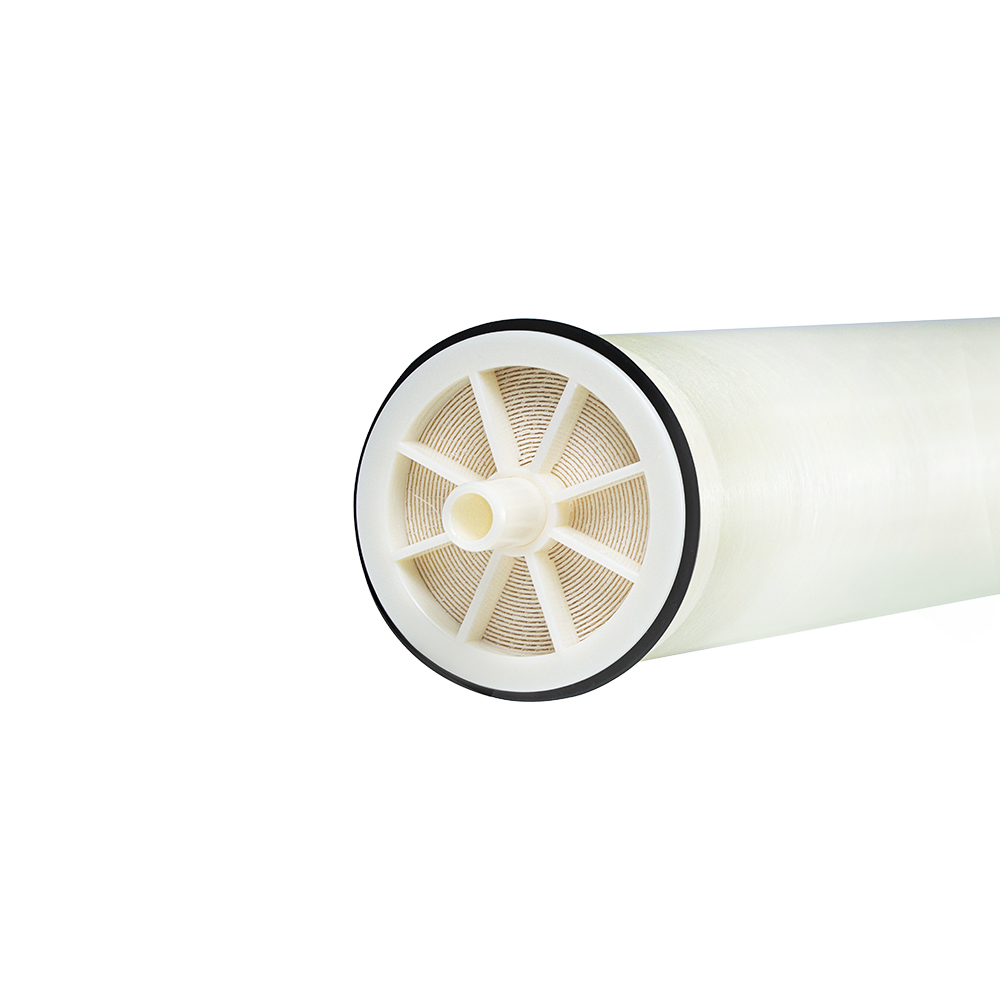

Being one of the earliest RO membranes manufacturers in China, HIDTM ranks the best brands among the Chinese RO membrane industry. Each RO membrane is made of HID TM high rejection flat sheet and goes through most stringent manufacturing processes as well as in-house quality inspection & testing till delivery. 4040 series RO membranes are widely used for filtration of tap water, underground water & brackish water; we well serve the industries including commercial drinking/food water treatment, electronics & chemical works, power plants, etc.
- HIDTM anti-fouling & high rejection flat sheet (film);
- lower energy costs (low pressure models) and higher productivity;
- highly stabilized rejection with realized nominal flux;
- minimize system CAPEX with HIDTM RO membrane excellent performance-price ratio;
- stringent in-house inspection & testing control.
| Model No. | Feed Spacer thickness (mil) | Min. Salt Rejection (%) | Stabilized Salt Rejection (%) | Permeate Flow Rate (GPD) | Test Pressure (psi) | Test water TDS (ppm) |
| TW-4040XLE | 28 | 97.5 | 98 | 2600 | 100 | 750 |
| TW-4040ULP | 31 | 98.2 | 98.8 | 2400 | 150 | 1000 |
| BW-4040LP | 31 | 98.6 | 99.2 | 2400 | 225 | 1500 |
| BW-4040AF | 34 | 98.7 | 99.2 | 2100 | 225 | 2000 |
1. Permeate flow rate and salt rejection is based on testing conditions: 25℃, PH 7.5, 20% recovery.
2. Stabilized salt rejection is generally achieved within 24-48 hours of continuous use, depending upon feedwater characteristics and operating conditions.
| Model No. | Maximum Operating Temperature | Maximum Operating Pressure | Feed Water PH Range, continuous operation | Maximum Feed Water Turbidity | Maximum Feed Water SDI | Chlorine Tolerance |
| TW-4040XLE | 45℃ | 300psi | 2-11 | 1NTU | 5 | <0.1ppm |
| TW-4040ULP | 45℃ | 600psi | 2-11 | 1NTU | 5 | <0.1ppm |
| BW-4040LP | 45℃ | 600psi | 2-11 | 1NTU | 5 | <0.1ppm |
| BW-4040AF | 45℃ | 600psi | 2-11 | 1NTU | 5 | <0.1ppm |
To ensure proper startup of RO water treatment systems is essential to prepare the membranes for operating service and to prevent membrane damage due to overfeeding or hydraulic shock.
To follow the proper startup procedure (available with water treatment system guide book) also helps ensure that system operating parameters conform to design specifications so that system water quality and productivity goals can be achieved.
Before initiating system startup procedures, membrane pretreatment, loading of the membrane elements, instrument calibration and other system checks should be completed.
It is CRITICAL to avoid any abrupt pressure or cross-flow variations on the RO membrane elements during start-up, shutdown, cleaning or other sequences to prevent possible membrane damage. During startup, a gradual change from a standstill to operating state is recommended as follows:
• Feed pressure should be increased gradually over a 30-90 second time frame.
• Cross-flow velocity at set operating point should be achieved gradually over 15-30 seconds.
• Permeate obtained from the first hour of operation should be discarded.
Keep RO membrane elements moist at all times after initial wetting.
If operating limits and guidelines given in this specification are not strictly followed, the limited warranty with the supplier will be null and void.
To prevent biological growth during prolonged system shutdowns, it is recommended that RO membrane elements be immersed in a storage solution.
The customer is fully responsible for the effects of incompatible chemicals and lubricants on elements.
The maximum pressure drop across an entire pressure vessel (housing) is 50 psi (3.4 bar).
Avoid static permeate-side backpressure at all times.


